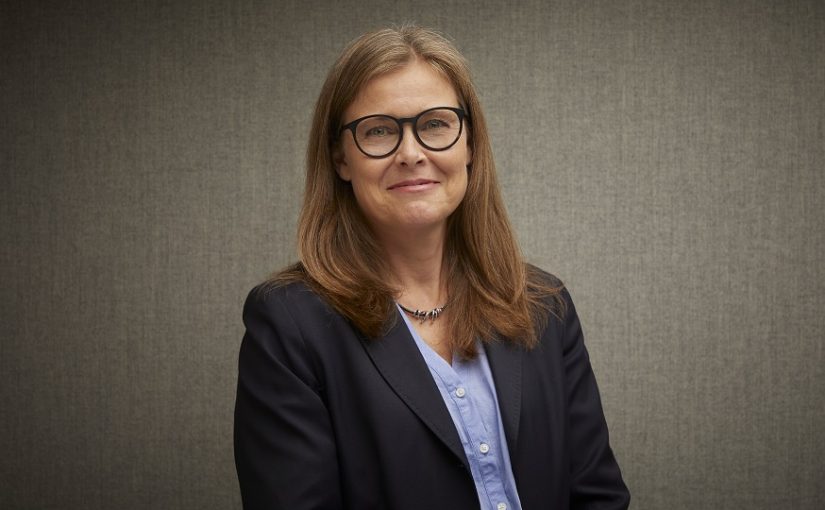Mozambique: Niassa Lion Project resumes activities in the Niassa Special Reserve
World Environment Day: “Only One Earth” – By Mette Sunnergren, Swedish Ambassador to Mozambique

Photo: Swedish Embassy in Mozambique
World Environment Day: “Only One Earth”
It was true in 1972. It is true today in 2022.
“Only one Earth” was the slogan of the 1972 Stockholm Conference, and it was true then. Today, 50 years later, the same slogan is true and still relevant. Planet earth is our only home, its resources are finite, so we must know how to use them in a sustainable way, so that future generations can also enjoy them.
It was true in 1972 when we recognized that “thanks to the rapid acceleration of science and technology, man has acquired the power to transform, in countless ways and on an unprecedented scale” the environment around him. It was true then, when we recognized that “we must direct our actions throughout the world with particular attention to the consequences they may have for the environment.
It was true when we recognised in 1972 that to reverse the course we were taking, it was “necessary that citizens and communities, companies and institutions, at all levels, accept the responsibilities they have and that they all participate equally, in this common effort.”
It is true, and with common conviction, that we defined (26) twenty-six principles in the 1972 Stockholm Declaration, of which the first principle is very similar to our Swedish values:
“Man has the fundamental right to liberty, equality and the enjoyment of adequate conditions of life in a quality environment that enables him to lead a life of dignity and to enjoy well-being, and he has the solemn obligation to protect and improve the environment for present and future generations.”
It was on the basis of this shared conviction that we decided to create the United Nations Environment Programme (UNEP).
Today, 50 years later, we still have the same conviction, and believe in the same principles.
“Only one earth” was true in 1972, when the planet had about 4 billion inhabitants. Today it is still true, our earth is the same, but more different, with many environmental and climate challenges and, with twice the world population of 1972.Today, as we celebrate the 50th anniversary of that truth that was 1972, we once again invite the world to consider the paths to a truly sustainable future. That is why Per Bolund, Sweden’s former Minister for Environment and Climate, and Deputy Prime Minister, said, “As a proud host of World Environment Day 2022, Sweden will highlight the most pressing environmental concerns, showcase our country’s initiatives and global efforts to address the climate and environmental crises. We invite the global community from around the world to participate in the important discussions and celebrations.”
“Only One Earth”, more than a slogan, is a worldwide campaign that is intended for everyone to celebrate World Environment Day through collective environmental actions aimed at bridging the implementation gaps of the commitments made since 1972, placing science at the centre of our actions and, acting in solidarity with those who have often contributed the least to the problems, but who are the most affected by the consequences.
Following the 2015 Paris agreement, and to show the seriousness of the commitments made, Sweden passed a law in 2017 in which it committed to be the first country in the world to be carbon neutral by 2045. Therefore, UNEP’s Executive Director, said that: “Sweden’s role in hosting World Environment Day in 2022 is therefore reflective of a historical and leadership commitment and a high level of ambition for the future.”
Today’s truth compels us to put nature and people at the centre of environmental work to better build and rebuild a greener society as we move through the various waves of the Covid-19 pandemic.
Sweden has invested heavily in renewable energies for some years now: only 1% of the country’s residential waste is sent to landfill; over 90% of aluminium cans are recycled; 993,000 kg of organic waste (food scraps) are collected every month in Stockholm and transformed into gas, used as fuel for buses and taxis; renewable sources represent 52% of the entire Swedish energy matrix (95% of this total comes from hydroelectric power stations). In this context, Stockholm wants to be the first capital city in the world to have a “carbon negative” district heating system, with the aim not only of compensating for the pollutants emitted to generate heat in winter, but also to ensure that the compensation measures exceed the volume of environmentally harmful gases released into the atmosphere. These are some examples of the Swedish commitment.
As we celebrate Environment Day, Sweden hosted, with the support of Kenya, on 2-3 June 2022, an international conference called “Stockholm+50, with the slogan “A healthy planet for prosperity for all – our responsibility – our opportunity”. About the event, the current Minister for Climate and Environment, Annika Strandhäll said “the countries of the world have made many promises and commitments, but implementation leaves something to be desired. Much more needs to be done quickly if we are to reverse the trend, which is why it is important for the world to come together and discuss the way forward.”
For, as the late Prime Minister of Sweden, Olof Palme, rightly said at the 1972 United Nations Conference on the Environment:
“Our future is common”. We must share it together. We must shape it together.”
That was true in 1972. It is true today in 2022.
By Mette Sunnergren
- Swedish Ambassador to Mozambique













Leave a Reply
Be the First to Comment!
You must be logged in to post a comment.
You must be logged in to post a comment.